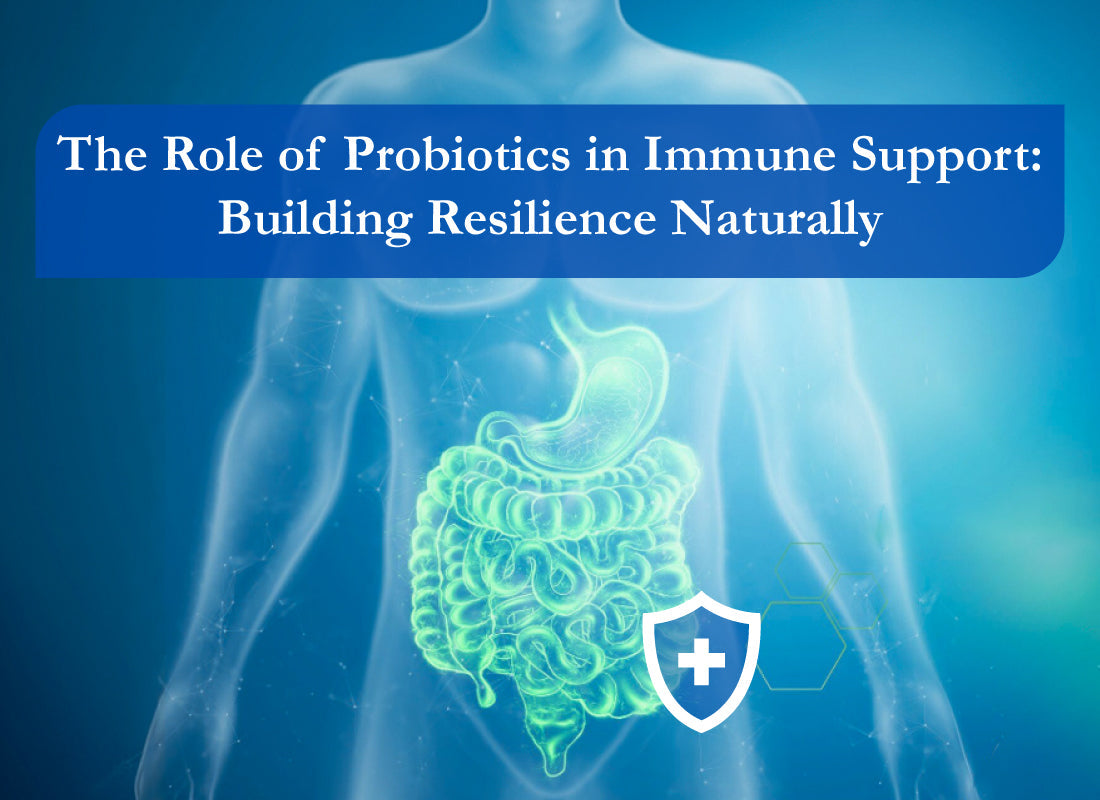When it comes to staying healthy, we all know the usual advice: eat right, exercise, get enough sleep. But did you know that the key to a stronger immune system might be tucked away in your gut? Yep, your gut health plays a huge role in supporting your immune defenses. And that’s where probiotics come in.
Probiotics, those beneficial bacteria found in fermented foods and supplements, are often touted for gut health, but their impact goes far beyond digestion. They’re essential for building a resilient immune system and keeping your body in fighting shape. Let’s dive into why probiotics are so crucial for immune support and how you can incorporate them into your routine.
The Gut-Immune Connection
It might sound surprising, but a large part of your immune system is actually housed in your gut. In fact, around 70% of your immune cells are located there. The state of your gut microbiome directly impacts how well your body can defend against illness.
A healthy, balanced gut microbiome helps regulate inflammation, supports the production of immune cells, and even influences how well your body responds to infections. If your gut is out of balance, whether from stress, poor diet, or illness, your immune system can become weakened and less effective. That’s where probiotics come into play.
How Probiotics Help Strengthen the Immune System
1. Promoting a Healthy Gut Microbiome
Probiotics work by adding beneficial bacteria to your gut, helping to balance the microbial community. When your gut is populated by good bacteria, harmful bacteria and pathogens have a harder time taking hold, which reduces your risk of illness.
2. Stimulating Immune Cells
Certain strains of probiotics have been shown to directly influence immune cells. These beneficial bacteria can boost the activity of T-cells and macrophages, which are key players in fighting off infections and keeping you healthy.
3. Reducing Inflammation
Chronic inflammation can wear down your immune system over time, making it less effective. Probiotics help regulate inflammation by supporting the production of short-chain fatty acids.
4. Enhancing Gut Barrier Function
Your gut lining serves as a barrier to harmful pathogens. Probiotics help strengthen this barrier, reducing the risk of harmful bacteria or toxins slipping into the bloodstream and causing an immune response.
Incorporating Probiotics into Your Routine
Now that you understand how probiotics help with immune support, how can you make sure you’re getting enough? The good news is that it’s easy!
1. Fermented Foods
Adding foods like yogurt, kefir, kimchi, sauerkraut, and miso to your diet can give you a natural dose of probiotics. These foods are rich in beneficial bacteria that help replenish and maintain a healthy gut microbiome.
2. Probiotic Supplements
If fermented foods aren’t your thing, or you want to make sure you’re getting a consistent dose, probiotic supplements are a great option. Look for high-quality, multi-strain probiotics that offer a variety of bacteria to support both gut health and immune function.
3. Probiomlyte: The Best of Both Worlds
For an easy and effective way to combine probiotics and electrolytes for gut and immune support, Probiomlyte is the perfect option. It’s packed with probiotics to support your digestive health and immune system, plus electrolytes to keep your body hydrated and functioning at its best.
Probiomlyte is a simple, tasty way to give your body the resilience it needs to fight off illness, whether you’re dealing with a seasonal cold or just trying to stay in top shape year-round.
Final Thought
Your immune system is your body’s first line of defense, and giving it the support it needs starts with a healthy gut. Probiotics play a key role in boosting immune function, reducing inflammation, and promoting overall well-being.
So, if you’re looking to build more resilience naturally, consider adding probiotics to your daily routine. Whether through food, supplements, or a combination like Probiomlyte, you’ll be helping your immune system stay strong and ready to defend you when you need it most.

